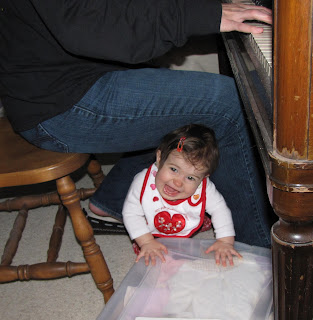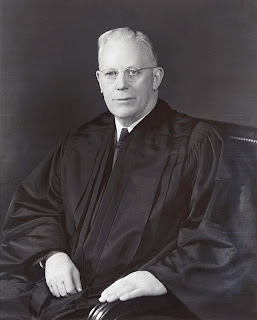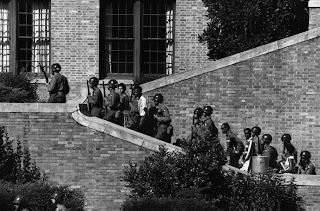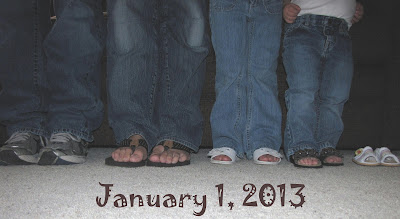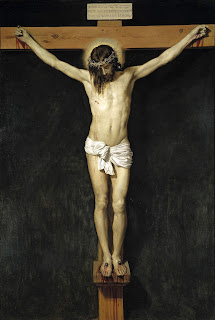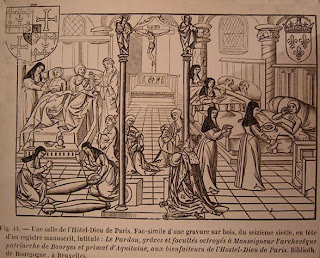art credit: Elijah in the Wilderness by Washington Allston
The Gift of Loudness
art credit: Elijah in the Wilderness by Washington Allston
Making new friends
I always enjoy making new friends.
I’ve recently discovered that you can make new friends without actually ever meeting them! A couple of months ago, I got involved in an online writing group and have had a glorious time making new friends from all over the country (and in a few cases, outside of the States!).
This mid-week post is a result of one of those friendships. My new friend, Debi Stangeland, has asked me to write an essay for her blog today. Will you come on over? Explore her blog a little while you’re there. It’s good stuff!
If you’re here from Funki Planet, welcome! Please explore and make yourself at home. I’d love to get to know you better.
God’s Passing Notes
I am really tired of getting things wrong, of feeling ashamed of myself.
I didn’t speak when I should have spoken because I was afraid of someone’s opinion of me.
I spoke sarcastically to my husband in front of several friends.
I chose to read story books rather than to spend time with God.
I yelled at my babies. While we were praying!
I often have a really hard time loving myself. I feel frustrated with my inability to obey, to love, to be perfect. I often have a very low opinion of myself.
I am fairly certain that I am not the only one who feels like this.
I want to share a truth that was recently spoken to me: Your opinion of yourself doesn’t matter.
Does that sound hard? It is true.
I care very little if I am judged by you or by any human court; indeed, I do not even judge myself…it is the Lord who judges me. ~ I Corinthians 4.3
It doesn’t matter what you think of yourself, whether or not you approve of yourself. Only God’s opinion of you matters.
That’s worth saying again.
The only thing that matters is whether or not God approves of you.
This then is…how we set our hearts at rest in His presence whenever our hearts condemn us. For God is greater than our hearts and He knows everything. ~ I John 3.19-20
And the best news of all? The news that fills up my heart and gives me peace?
If you are in Christ, God does approve of you!
Just read Romans 8:
vs 1: Therefore, there is now no condemnation for those who are in Christ Jesus…
vs 33: Who will bring any charge against those whom God has chosen? (Yes, this includes bringing charges against yourself!) It is God who justifies.
vs 38-39: For I am convinced that neither death nor life, neither angels nor demons, neither the present nor the future, nor any powers, neither height nor depth, nor anything else in all creation, will be able to separate us from the love of God that is in Christ Jesus our Lord. (italics mine)
When I am playing a difficult piece on the piano, sometimes I play the wrong notes. When that happens, rather than getting upset, making horrid faces and just quitting, my mother taught me to simply improvise the wrong notes into the next bit of music. These wrong notes are then given a new name: passing notes – notes that don’t really fit but can become fitting.
For me, one of the most breathtaking things about being a Christian is that God can take our worst mistakes and turn them into His passing notes. That’s what God is promising to do for us in the end, and it can start now. And if you haven’t heard that before, it’s time you did. ~ Jeremy Begbie
So. Take a deep breath. Quit thinking about yourself and your mistakes.
Trust God’s approval of you in Christ. Allow Him to turn those mistakes into His beautiful passing notes that lead us to become who God intended for us to be.
His Invisible Hand
Our family has been learning over the past few years as we experienced some truly ugly things. We’ve learned about who God is and what He asks of us even when we don’t understand or like what is happening.
My learning will never be complete (for which I am grateful…I’m one of those odd ones who loves to study and learn!) and I recently was struck by yet another lesson as our church studied through the book of Ruth.
As I studied Ruth and as I thought about this book as compared with other books in the Bible, I noticed that God seems to work in two very different ways.
God sometimes uses His visible hand of miracle to accomplish His purpose. Think about the parting of the Red Sea and the manna provided from heaven. Think about the healing of Jairus’ daughter and the feeding of the 5,000.
God also sometimes uses His invisible hand of Providence to accomplish His purpose. This is what happens in Ruth. Israel is in the period of the judges which means that they are bouncing around between brief periods of stability and long periods of rebellion, being conquered by foreign armies, and experiencing severe famines.
Here are Naomi and Ruth: they are widows, they are childless, they are in a foreign land, they are going home to Israel not knowing what they will find.
Naomi, especially, knew the traditions of her God. Perhaps Ruth had heard the stories. The miracle stories of Noah saved from the flood, of Israel rescued from Egypt. I imagine they may have wished for that visible hand of miracle.
Instead, they got hard work gleaning in a field, an owner of that field who just happened to stop by and act with kindness, the surprise of that very owner being a close relative, a desperate and courageous request from Ruth. The result? A marriage, a baby, perhaps a bit of stability. Several small blessings along the way, but certainly no miraculous raising of the dead.
And yet.
From that marriage and that child came the greatest king that Israel would ever know, bringing wealth and stability and godliness to the nation.
From that marriage and that child came the greatest King that our world would ever know, bringing rescue and mercy and grace to all the nations.
My honest confession? I want the miracle. I don’t want the invisible hand of Providence. When Kristina was fighting for her life, we begged for miraculous healing. That’s not what we got.
And yet.
Even though the miracle is what I wanted, I can still trust in God’s unseen hand. I can know that God is still working, even though we, like Naomi and Ruth, may not see the end of the story.
Even though I am now pleading for another miracle, I am so grateful to be assured that while I pray out my sadness, my anger, and my bitterness, God is right now at work healing hurts not even felt yet and creating answers to problems I haven’t even yet encountered.
Abba. Thank You.
(if you are viewing this via email/in a reader, click here to view this video)
art credit: Whither Thou Goest painting used with gracious permission by artist Sandy Freckleton Gagon
Law of the Land
There have been a lot of consequential decisions handed down by the Supreme Court lately.
Perhaps one could argue that all decisions made by the Supreme Court are consequential.
There was the decision on Arizona’s immigration law and there was the decision on Obama’s healthcare plan. There was the decision about giving minors a life sentence without parole and there was the decision about how much power Unions have over non-union members. There was also the decision about how strict the FCC can be over incidents of expletives and nudity on television.
In the midst of all of this recent uproar, I have been thinking about and looking back on past years of the Supreme Court.
One thing I have found interesting is that this Roberts Court has changed, or at least interrupted, the trend of the Supreme Court to become more and more broad and momentous in its decisions.
Until the 1940’s or 1950’s, the Supreme Court simply made decisions on the cases it was given. Around the mid-twentieth century though, especially during the Warren Court, the Court began making broader and more sweeping decisions that affected the policy of the entire United States rather than solely impacting the case or the law that was under judgement.
This trend has had the effect of giving the Supreme Court the sort of power that is held by Congress and the President. The sort of power that can change the law and policy of our country.
The Roberts Court seems to be deliberately scaling back this trend. The majority of the judgments handed down by this current Court are much more narrow, are applied only to the particular case in dispute rather to the entire country. I will let people who are smarter than I tell you why this is, but one thing I find of interest about this is that there have been many more unanimous decisions with this Court than in the past.
Another interesting effect of this narrowing of the role of the Supreme Court has been that, until fairly recently, the Court has faded a bit in the public eye. Chief Justice Roberts seems to be comfortable with not setting his aim for creating a public legacy, for making himself and his Court more important.
I wonder what you think. Should the role of the Supreme Court be more broad, affecting public policy in a large way, or should decisions be more narrow, confined to the case and the law in question?
I think that many conservative Christians would instinctively lean toward the latter opinion. After all, wasn’t it the comprehensive judgement in Roe v. Wade that made abortion legal and set our hearts to aching for all of those unborn babies?
Yet in the interest of conversation and in the interest of using our hearts and minds rather than only our hearts, we should think about other changes the Court has made over the years. Good changes as well as poor changes.
The first and biggest example that leaps to my mind is the very broad judgement in Brown v Board of Education. If you need refreshing on your case names, this is the judgement that paved the way for the ending of racial segregation in our country. This is the decision that stated that separate is not equal.
Who of us would ever say that ending racial segregation was a bad thing? Yet when Congress wouldn’t do the job it should have done, it took the Supreme Court making an encompassing judgement to change the policy of our nation.
So. Narrow or broad? Case-deciding or policy-changing? Should the policy and laws of this country be decided only by an elected Congress and President or should the appointed Supreme Court be allowed to step in when others are not courageous enough to do the hard thing? And who gets to decide which hard thing is right: abortion, segregation, right to an attorney, gay marriage?
I’m interested to hear what you think.
I’m interested to continue watching the Roberts Court and to discover where they will lead our country.
Tender
art credit: Christ and Samaritan Woman by Siemiradzki
Hello world!
Welcome to WordPress. This is your first post. Edit or delete it, then start blogging!
An Announcement
How Truth Got Hijacked
One reason that I wrote recently about character, how we form it and why it matters, is because of the lack of it that I see all around me.
When we can cheat and lie “just a little bit” and still think highly of ourselves, when we show our kids that it’s okay to do little wrong things to get by, when it is more wrong to judge evil than to do evil, we are in trouble. For our society to function, we need people of character in leadership positions from teachers and managers to mayors and governors.
Why is this? Why do ordinary people care so little about acting in moral ways?
I think a lot of this dearth of character, of virtue, comes from the rejection of the idea of truth.
If truth is, at best, all relative, a matter of perspective, and at worst, a social construct, whatever we make it to be, then why should we work hard to develop a character that may or may not be valid to those around us?
If there is no truth that we can deliberate and discover together as a society (whatever that truth may be), we are left with “power and propaganda and grievance and anger and caucuses and anti-caucuses and special interest groups and victims and vengeance.” ~ Richard John Neuhaus
There is an assumption in much of society, in many of our universities especially, that we can’t keep society and relationships going if we talk about truth because truth brings conflict. Truth has gained a negative connotation, one that assumes that anything so divisive has no appropriate role in public life.
How did this happen? How did truth get hijacked and associated with the negative? How did truth become linked with religious totalitarianism and Osama bin Laden? How did it become shameful to declare a belief in truth, even simply the idea of truth, regardless of what that truth is?
Part of the answer, I’m afraid, is due to the Church. We have a history of wielding the truth as divisively as possible, of tearing down and even destroying rather than creating and building up. We have used truth as an excuse for starting wars and we have used truth as an excuse to look down on our neighbor.
Richard John Neuhaus says that it is now the Church’s task to learn how to assert truth in public “persuasively and winsomely and in a manner that does not violate but strengthens the bonds of civility”. He challenges that it is our duty to not just tolerate those with whom we disagree but to eagerly engage them in love.
How? How do we declare truth without being divisive and unpleasant, causing strife, conflict and wars?
By remembering grace.
By remembering that we can’t even live up to our own standards and yet we are loved.
If we despise anyone or feel superior to anyone, we are living by moral performance rather than grace. And living by moral performance is what brings divisiveness to the truth.
By the way we live, living a life of loving and caring for others, we can show truth and speak truth with no divisiveness at all.
This is what the early Christians did when they loved the poor, empowered women, and brought together the races and classes. This is how the early Church overran the Roman Empire when it wasn’t even trying to gain political power.
This. This is the truth we need.
Because this truth is
a God Who became weak, Who loved and died for the people Who opposed Him, forgiving them. ~ Tim Keller
Will you speak and live this kind of truth to your public? Our world desperately needs Him.
A Year of Writing
One year.
That’s how long I’ve been here at this space, writing about life and culture, things in our daily lives and in the world around us, pain and death and ugliness, life and hope and beauty, and how God resides in all of these things and fills them up with Himself.
Here is what I wrote in my very first post:
Writing is a difficult thing. It requires one to be vulnerable, to trust the world with a piece of oneself while knowing that the world can be a cruel place.
Perhaps this is why I have declined to join the world of blogging until now.
Perhaps, too, it seems as though everyone is a blogger. Everyone has something to say and not many wish to listen. Perhaps no one will wish to listen to me.
Yet I still feel that God is asking me to write. Not to write and hide but also to share.
I have resisted this for quite a while now. Why? Partly due to the work involved.
Even now, I am only agreeing to write once a week.
A large part, however, is that I don’t feel that I have anything new to say. To add to the over-quoting of Solomon, “There is nothing new under the sun”. (Ecc. 1.9) Who am I to think that I could say something new or even to say something old in an improved way?
Perhaps God is simply asking me to restate old things for a single reader.
Perhaps God is even more simply asking me to write so that I can grow to be more like Him as I think through various ideas aloud.
Whatever the reason, here I am. Obeying, even though afraid. I will write. God will listen. I pray He will be pleased.
There is not much about these thoughts that I would change, even after a year. It is still difficult to send out my thoughts and ideas, my hurts and my hopes. I still feel almost silly telling anyone that I have a blog.
And I still feel that God is still asking me to keep writing.
There is a lot that I have learned this year.
I have discovered that there is a huge world out there called the blogosphere. It is, mostly, a world that I don’t interact with very often. Partly because I only write once a week and haven’t yet made the space for interacting with other blogs. Partly, too, because many in this world have begun their blogs to make money, mostly for very beautiful reasons, yet I have decided that I don’t want to clutter up my space with advertisements and buttons. Not that there is anything at all wrong with any of that. I simply want something different, something more simple for this place.
I have discovered that the more I write, the better I am at this art. The more I write, the more my heart craves to create. The more I write, the more ideas that flood into my mind.
I have discovered that I love the art of writing in this sort of a place, love how I am able to craft and mold my words together with other arts. Photographs, paintings, sculptures, music…it fills something inside of me to bring them together to make words even more beautiful than before.
One of the most beautiful things I have discovered is how my love for God has grown with my writing. When I committed to writing once a week, I was also, inadvertently, committing to continue reading, studying, listening, pursuing God and the things of God. This has expanded my heart and mind and caused my view and knowledge of God to hugely grow.
Perhaps this is why God asked me to write.
I still wish to have others read what I write. I still have a dream of being published.
Yet if all that happens through my writing is that I become more like Christ, I am satisfied.
So. I will close this first year as I began:
Whatever the reason for my writing, here am I in this space. I will continue to obey, even though it is hard and often causes my heart to feel fear. I will write. God will listen. I pray He will continue to be pleased.
(By the way, I will be changing things around here fairly soon and moving to my truly very own space. I’ll let you know when that time comes, but I pray and hope that you will continue to join me on my journey.)

